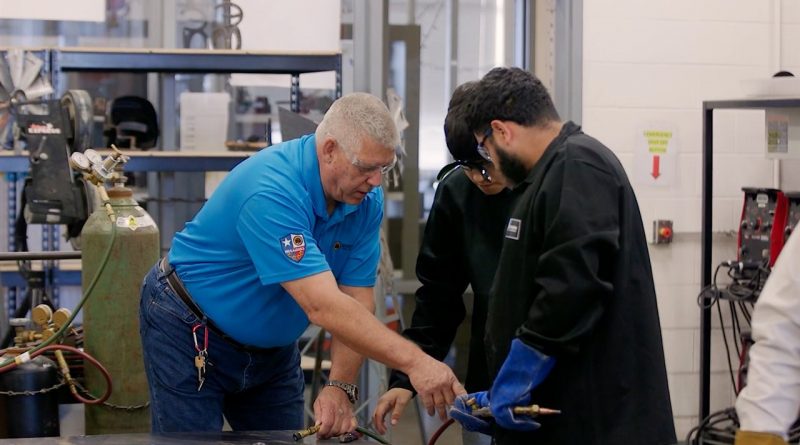Simple steps to help students explore trade careers
With many college students graduating with four-year degrees and struggling to find employment to make ends meet, younger generations are starting to consider the benefits of a career in the trades.
Parents are taking note as well because in many communities the demand for qualified trade professionals far outweighs the supply, meaning people who are trained and ready to work are in high demand in the construction, automotive, manufacturing and other industries.
How high is demand exactly? Three out of four contractors expect to keep adding workers in 2020, according to a survey by the Associated General Contractors of America. Even more respondents found it difficult to fill positions in 2019, and a majority anticipate it will be as hard or harder to do so in 2020.
The skilled labor shortage is a concern for many companies, but an opportunity for students. For example, better than average employment is projected in the building trades at least through 2026, according to the Bureau of Labor Statistics. People becoming electricians, plumbers, brick masons and more should experience ample employment opportunities.
“You can get proper training for many trades through a two-year vocational college, certificate program or even apprenticeship,” says Joe Apolloni, Senior Vice President of Retail at Northern Tool + Equipment. “Compared to many four-year degrees, the overall cost is less to pursue trade careers and many people are hired immediately after graduation at respectable salaries.”
Parents and caregivers can help their children learn more about a possible career in the trades, while many companies, like Northern Tool + Equipment, are also supporting the cause by donating equipment and expertise to trade schools and their students to encourage and empower students to pursue a career in the trades.
To spark your child’s curiosity and help them take the first steps toward a trades career, Apolloni recommends these steps:
1. Talk it out
From wind turbine technicians to welders to elevator mechanics and beyond, there are hundreds of trades and many have been transformed significantly over the past decade due to technological advances. Start by having a conversation with your student about their interests, their desires for the future and which trades might be a good fit for them. Your support and guidance in narrowing down options will make a big impact.
2. Sign up for electives or extracurricular programs
Ask about school opportunities related to the trades. Many middle and high schools offer elective courses and after-school activities introducing a variety of trade skills. Set up a time to meet with the school counselor and ask questions about these types of classes. Sign up for any that spark an interest.
3. Find a mentor or community volunteer opportunity
Having someone a young person can look up to is an amazing way to support their career exploration. Many schools and communities offer mentoring programs that could help your child learn more about a potential trade and make some valuable connections. If no such program exists, consider volunteer opportunities nearby. If they can assist others in their profession of interest as a volunteer experience, it not only makes a difference, it’s a notable addition to their resume.
4. Attend local college fairs
Finally, college fairs can help any student learn more about trades and opportunities nearby. College reps are wonderful at answering questions and guiding students toward a study path that will lead them to a meaningful career.
“So many trade jobs are just waiting to be filled by the next generation of construction workers, manufacturers, welders, auto mechanics and more,” says Apolloni. “It’s a really exciting time to be involved in the trades.”
BPT









